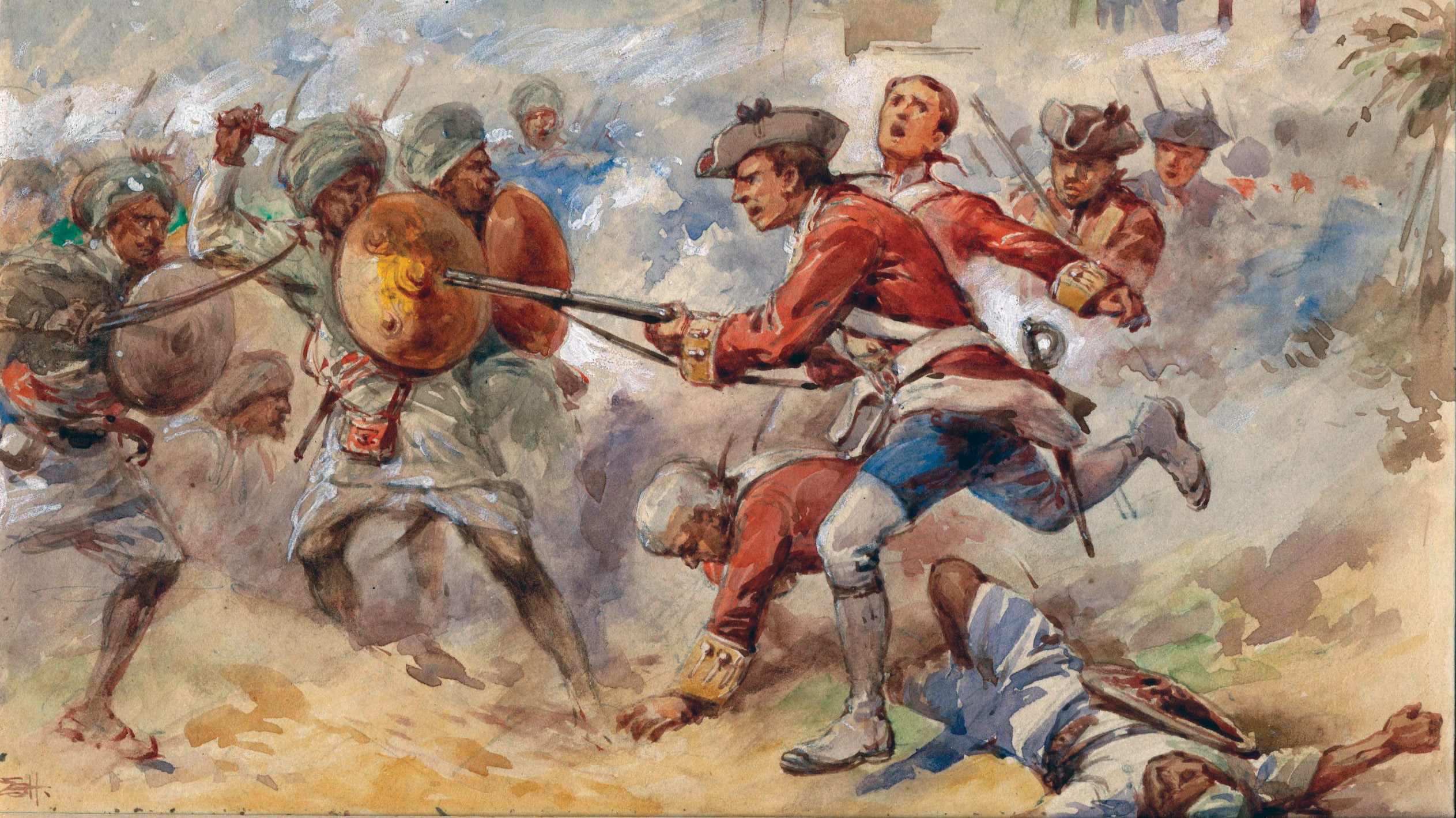The Battle of Plassey: A Turning Point in British Colonial Control of India
History Indian HistoryPosted by NewAdmin on 2025-01-29 09:53:11 |
Share: Facebook | Twitter | Whatsapp | Linkedin Visits: 32

The Battle of Plassey, fought on June 23, 1757, is one of the most significant events in Indian history, marking the beginning of British political control in India. The battle took place near the village of Plassey, located in present-day West Bengal, between the forces of the British East India Company, led by Robert Clive, and the Nawab of Bengal, Siraj-ud-Daulah. The conflict arose from tensions between the British and the Nawab, who was opposed to the growing influence of the East India Company in his territory.
Clive, commanding a relatively small force, was able to defeat the much larger army of Siraj-ud-Daulah due to a combination of military strategy, internal betrayal, and political intrigue. Several key figures in the Nawab's army, including Mir Jafar, the commander-in-chief, secretly allied with the British, which proved crucial to the outcome of the battle. The betrayal led to the collapse of Siraj-ud-Daulah's forces, and he was eventually captured and executed.
The victory at Plassey gave the British East India Company substantial control over Bengal, one of the wealthiest and most strategic regions in India. Following the battle, the British installed Mir Jafar as the Nawab of Bengal, effectively making him a puppet ruler under their influence. This event marked the start of British political control in India, laying the foundation for their subsequent expansion and dominance over large parts of the subcontinent.
The Battle of Plassey is often considered a turning point in Indian history, as it signified the decline of native Indian powers and the rise of British colonial rule. It also highlighted the role of economic interests, military tactics, and political alliances in shaping the course of history. The battle not only secured British economic interests in India but also paved the way for the eventual establishment of the British Raj, which would last until India's independence in 1947.
Search
Categories
Recent News
- Pawan Kalyan's Telangana Campaign: A Political Strategy
- Hyderabad's Pedestrian Revolution: A City Reclaims its Footpaths
- Hyderabad's Traffic Vigilantes: Citizens Take Charge
- Billionaire's Pledge: 75% Wealth to Charity
- Unveiling Nagawara's Historic Roots: A Village's Story
- Indian Man's Mid-Air Assault: A Disturbing Incident
- MS Dhoni's Commentary Conundrum: Why the Legend Avoids the Mic
- Trade Deal Debate: India's Energy Security Assured, Says Minister Goyal